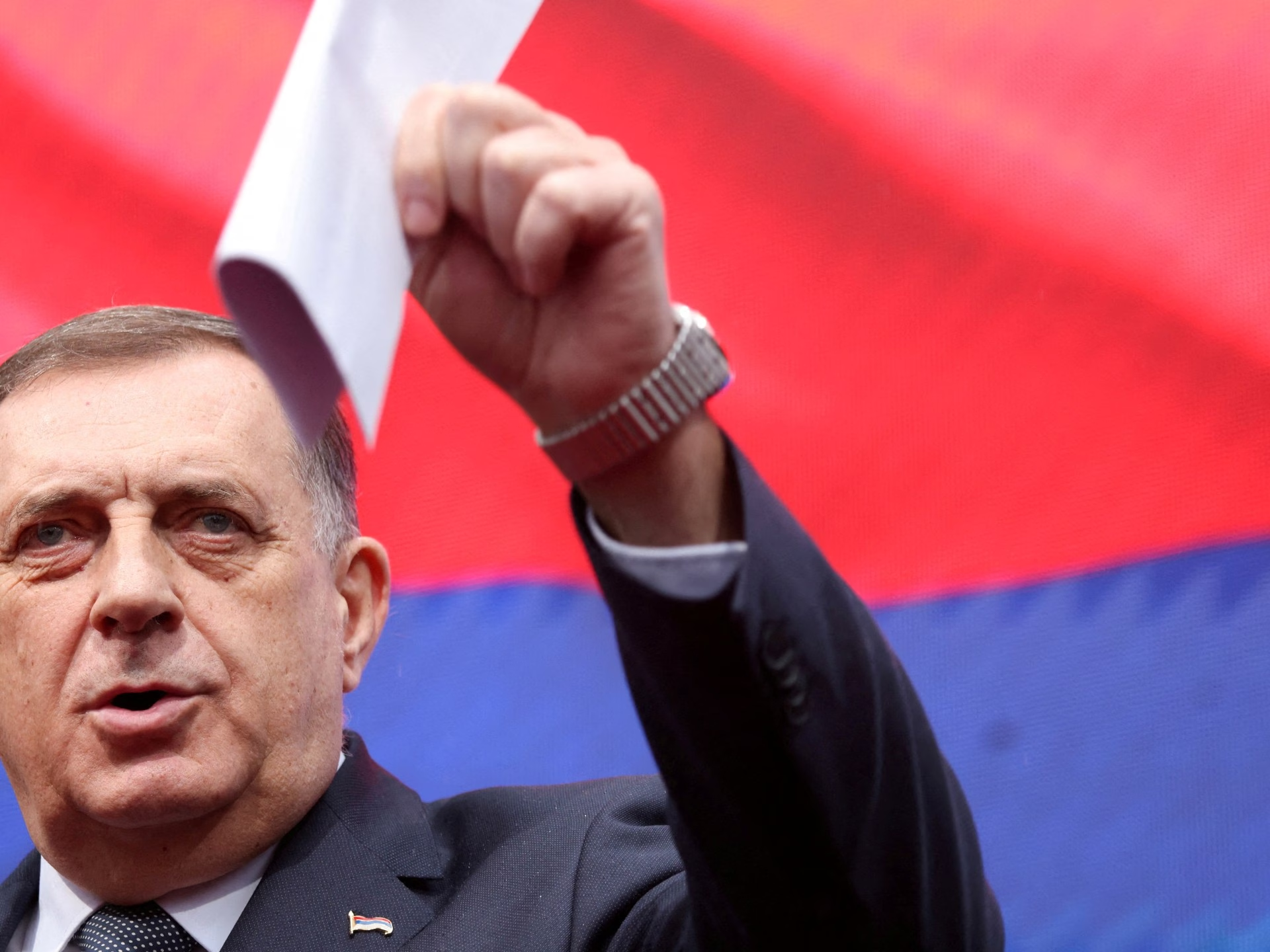The Office of the High Representative (OHR) oversees the implementation of civilian aspects of the Dayton Peace Accords, signed in 1995, which ended the war in Bosnia. The OHR has been led by a succession of European officials for almost three decades. Its current chief is Christian Schmidt, a former politician from Germany. Dodik has been at odds with Schmidt since his arrival in Bosnia in 2021.
For domestic and international observers, the court ruling represents an interesting development and heralds uncertainty. Dodik’s rise to power in 2006 marked a period of continuous crises in Bosnia. Over the past two decades, he has worked to strengthen himself and the political entity he oversees while undermining Bosnia’s state-level institutions.
Compared to his record of obstructing Bosnia’s progress, failing to abide by Bosnia’s Constitutional Court rulings, denying genocide, and hurling insults at Bosniaks, Dodik’s confrontation with the OHR may have been considered a lesser political offense. However, the sentence and ban on his political life for six years could signify the beginning of Dodik’s political downfall or a renewed attempt to push Bosnia to the brink.
In response to the sentencing, the Republika Srpska assembly adopted a document rejecting the court’s ruling and Schmidt’s authority. Serbian President Aleksandar Vucic visited Dodik after the ruling, amidst his own problems. Dodik’s lawyer indicated that they would appeal the ruling. The Republika Srpska assembly adopted draft legislation aimed at preventing state-level judicial and police institutions from exercising sovereignty in this part of Bosnia.
The future remains uncertain as political stability in Bosnia could be affected by the appeals process. Dodik remains influential in Republika Srpska, controlling his party and institutions. However, he has also overstayed his political welcome and is linked to crises and outlandish rhetoric.
Media reports indicate support for Dodik from Vucic, Hungarian Prime Minister Viktor Orban, and Croatian President Zoran Milanovic. However, Dodik’s political future depends on Bosnia’s state institutions’ response and his own support base. His ability to generate crises for concessions has been a pattern, leading to his accumulation of power and resources. A firm stand by Bosnia’s state institutions to implement decisions and confront Dodik is overdue and may determine how far he is willing to go and the level of support he commands.
In the coming weeks and months, Bosnia’s State Court, Dodik’s power base, and Vucic’s support (or lack thereof) will be crucial factors. If the Appeals Chamber upholds the sentence, Dodik will be vulnerable, potentially leading to another standoff. However, if the court overturns the ruling, Dodik will claim victory and feel emboldened. A weakened Dodik will gauge his support and assess the loyalty of his political base, while Vucic’s concern with domestic protests in Serbia may limit his ability to support Dodik.
Signs of Dodik’s political weakness may also encourage his proteges or close associates to seek to replace him. The legislation passed by Bosnia’s Republika Srpska entity barring the national police and judiciary from its territory indicates Dodik’s loyal supporters and control over the entity’s institutions.
The views expressed in this article are the author’s own and do not necessarily reflect Al Jazeera’s editorial stance.







